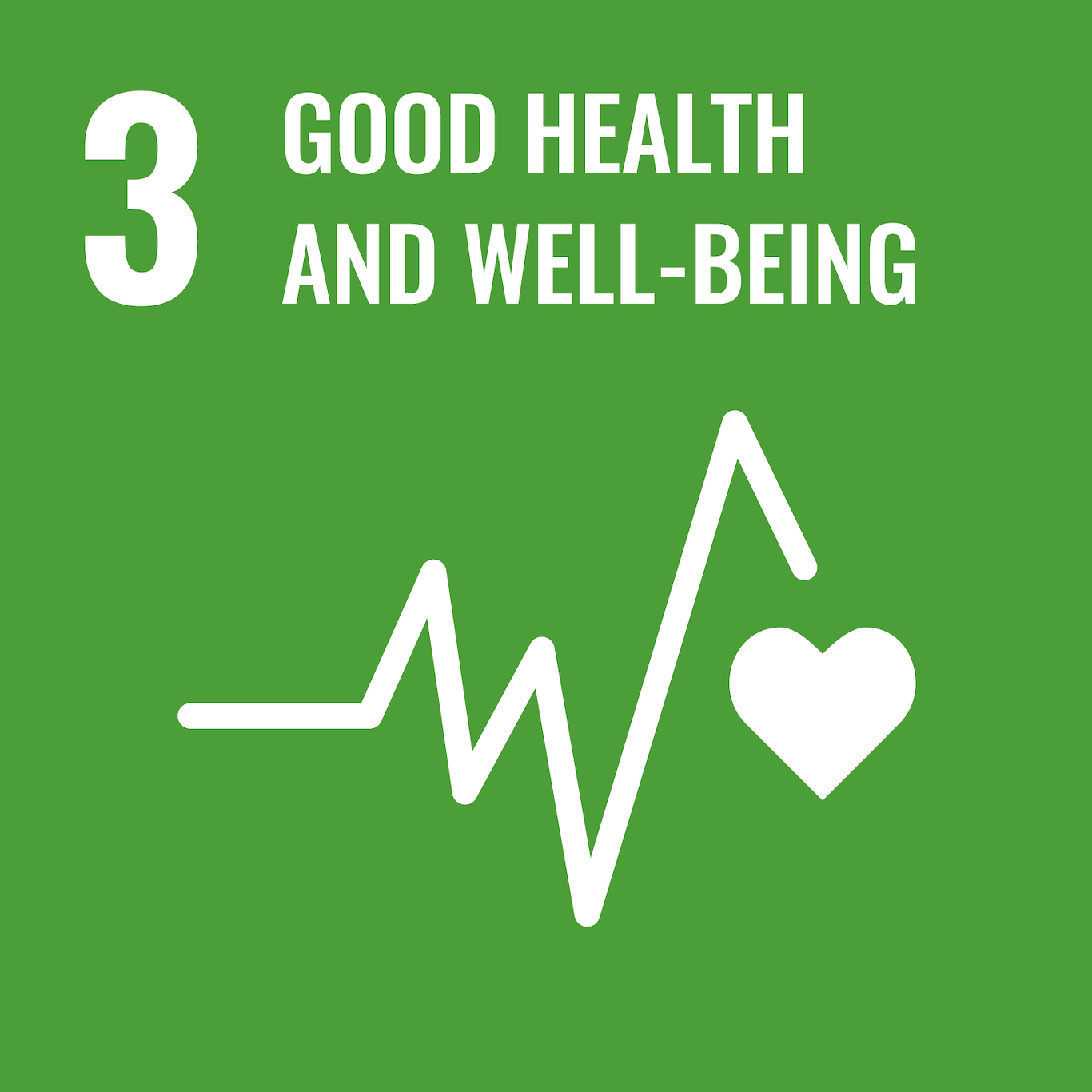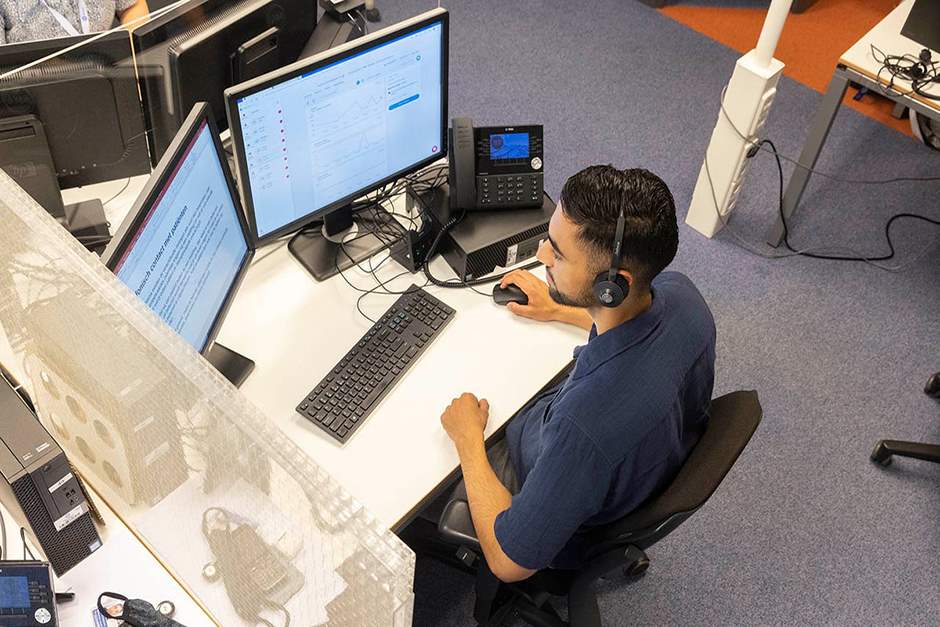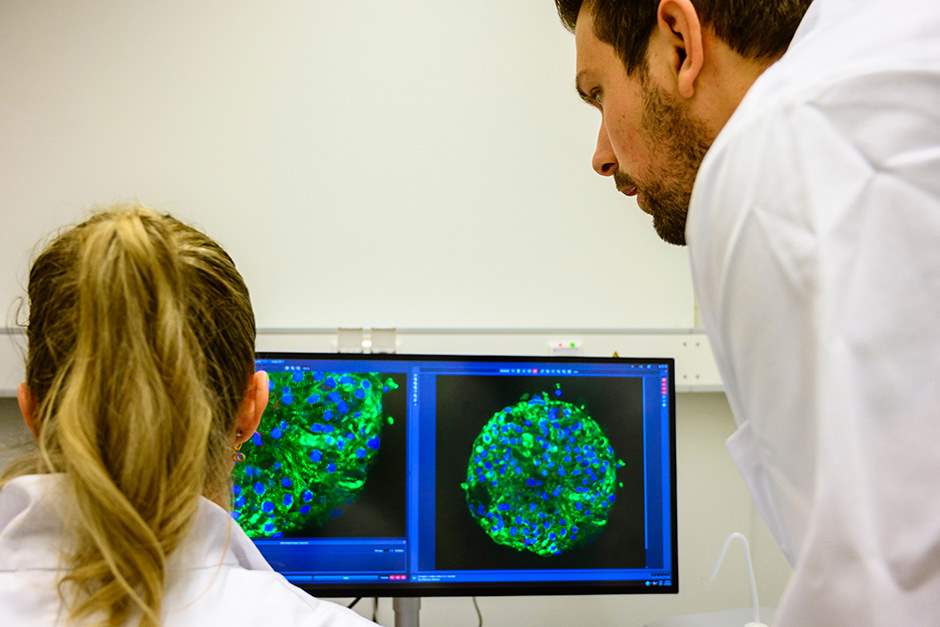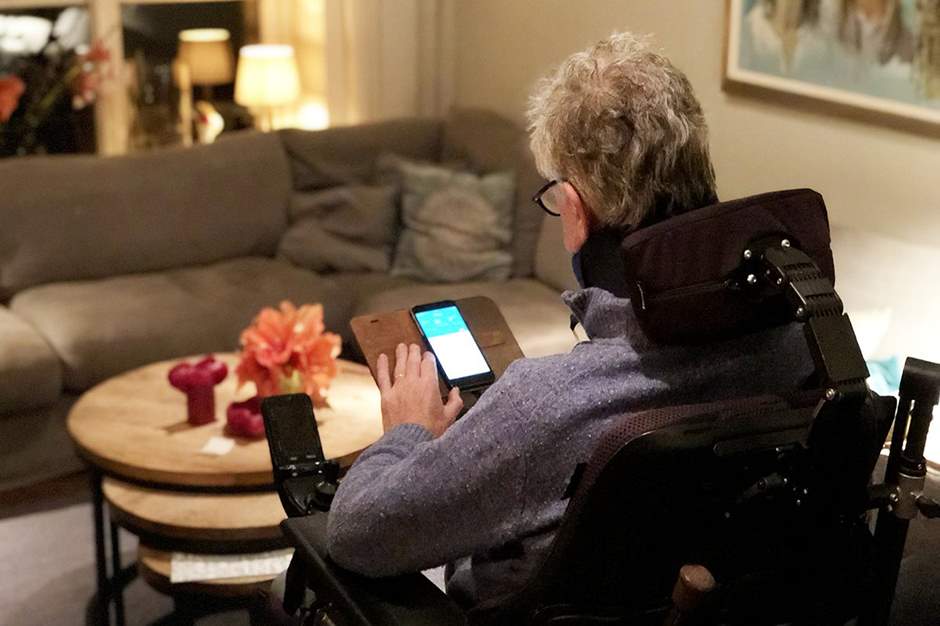Digital care
UMC Utrecht, together with its partners in and outside the region of Utrecht, are giving shape to the healthcare of tomorrow. We are studying whether and how digital technology can make healthcare more personal, more efficient, and better. Healthcare that is available to everyone, and as close as possible to individual wishes and needs. If care can be provided at home, that is what we do. This will leave room for care that needs to be provided at the hospital. And avoid unnecessary travel, which will help to reduce our CO2 emissions. Naturally we accompany and support patients in the use of digital healthcare solutions. Much of this is done from our Medical Control Center .

Safe remote care through ongoing monitoring
The demand for emergency care is growing, while healthcare employees remain scarce. To be able to (still) offer high-quality acute care in the right place, we must organize our healthcare in a smart and safe way. Within the COVERED program we develop and implement ongoing monitoring of patients from a distance . For example the monitoring of vital statistics like heartbeat and breathing. We can thus detect faster when patients are deteriorating and can help healthcare professionals to do their job efficiently.
In 2023 we successfully pursued with continuous monitoring via COVERED@UMCUtrecht in our nursing unit C2West. It now forms part of the regular process here with over 1,000 patients who have already been monitored continuously. In addition, we started in 2023 with continuous monitoring in the scope of research at medium-care surgery (C2Oost). Based on the experiences of both these units, we are improving and optimizing continuous monitoring. We thereby ensure that we are applying it safely and effectively. In 2024 we want to deploy COVERED@UMCUtrecht in even more nursing units at UMC Utrecht.
In 2023 we also temporarily used continuous monitoring via COVERED@UMCUtrecht in the treatment of a patient with cancer, following a request for help from an internist-endocrinologist. The hemodynamically instable patient could thus get monitored effectively during radiotherapy. Both the patient and the healthcare professionals involved are enthusiastic about the use of continuous monitoring .
In 2023 we furthermore looked at how we could use COVERED@home safely and efficiently in home situations. Within this feasibility study, twenty patients wore a continuous-monitoring sensor for five days after they were discharged from UMC Utrecht. With the gathered data and patient interviews we were able to establish the right protocols for COVERED@home. We thus ensured that patients could recover safely in their own living environment from for instance airway infection or surgery, with support and 24/7 remote monitoring from our Medical Control Center . The results of this technical feasibility study were made known at the beginning of 2024.
More patients monitored at home
In 2023 home monitoring and treatment increased further. In total we monitored over 1,250 patients at home, which is an increase of over 40% compared to 2022. This involved periodical monitoring, where patients updated their own measurements a few times a week from their home environment into an app. For example body temperature, blood pressure, and the strength of their hand grip. They also answered questions on how they were doing. Our healthcare professionals watched from a distance. They evaluated and sorted all imported data based on the established treatment protocols and accompanied patients in their treatment or recover process. Colleagues from other hospitals in and outside the country also visited UMC Utrecht in relation to home monitoring. We shared our knowledge and (further) explored cooperations.
Improved care to patients witg ventricular assist devices through home monitoring
For patients who had received a ventricular assist device at UMC Utrecht, we developed the home-ventricular the home monitoring application MCS@home. A MCS ventricular assist device stands for Mechanical Circulatory Support) is a mechanical pump that supports and partly takes over the function of the left heart chamber . Since November 2023 all patients with a ventricular assist device have been able via the MCS@home app to fill in and update relevant data from home and monitor the progress thereof. For example ventricular assist device values and weight. A weight increase can indicate water retention, which is an important sign of possible complications. If any of the values that have specifically been defined for the patient is exceeded, the specialized ventricular support system nurse ant UMC Utrecht receives a small signal. They will then contact the patient and take action if needed. With the help of MCS@home (health) problems can be signaled early on. This can reduce the number of complications and possible re-uptakes and help us to improve care for patients with a ventricular assist device.
Since the end of 2023 MCS@home has formed part of ventricular assist care at UMC Utrecht. Studies show that patients give ventricular support care at UMC Utrecht a score of 9.
(Regional) support for remote care
Our Medical Control System , a digital care and monitoring facility, plays a significant role in the support for remote care. Through the structural organizing and expansion of the Medical Control Center in recent years, remote monitoring since 2024 no longer needs to be done periodically but can also be done continuously, i.e. 24/7.

To give patients the best possible care, it is also necessary to work with healthcare institutions and professionals at a regional level. It is for instance important that a healthcare professional at the hospital can coordinate with a patient’s GP or a home-care nurse. For example by providing aids such as oxygen administered at home. Our Medical Control Center plays an important part here. In 2023 we therefore, in line with the Integral Healthcare Agreement (IZA), launched a study of how we as UMC Utrecht can organize and give support at a regional level.
AI improves the quality and efficiency of healthcare
In 2023 we worked further on applied data-science initiatives in healthcare , where we make use of artificial intelligence (AI). On the one hand these initiatives reduce the administrative burden of our healthcare professionals, so that they can give more time to patients. On the other hand these are care applications with which we improve the quality of care for patients. These AI applications form part of the ‘implementation of AI’ in our program 'Data Science UMC Utrecht'. In this program we bring data infrastructure, research & development, and the implementation of AI together (‘3AI’).
In 2023 we worked among other things on an application that allows the automatic counting of cell divisions in a pilot for patients with breast cancer. With this application we support pathologists in their work. It enables them to work faster and often more accurately. The outcomes of the pilot will be known in 2024.

In addition we are working on an application that predicts no-shows in outpatients. Patients with a high chance of no-show are called by a student call team to remind them of their appointment. Following a pilot at three outpatient units we have seen a definite drop in no-shows. In 2024 we shall be extending this to other outpatient units at UMC Utrecht. We are hoping eventually to have 15 to 20% fewer no-shows at our outpatient units. This will ensure that patients receive the care they need, and that we can make better use of our capacity.
In 2023 we also investigated how AI language models such as ChatGPT could help to reduce the administrative load of healthcare professionals at UMC Utrecht. And what healthcare professionals’ needs are in this regard. Based on this, we have launched three projects: automation of discharge letters with language that is more accessible for patients, automated preparation of any information that is needed for consultation appointments at outpatients, and smart search of information in care protocols. We are also working on an application to convert spoken text in the consulting room into a summary for the electronic patient record. This gives patients and their families the chance to reread the most important information in their own time.
Lastly, we are organizing a meeting for the knowledge network on AI implementation in healthcare for more than 40 healthcare organizations and knowledge institutions in the Netherlands. Topics include ways in which we can work together even more effectively to speed up the implementation of artificial intelligence (AI) in the healthcare process.
Good and safe digital healthcare
Digital healthcare cannot be considered without quality and safety. Safety and responsibility must be prerequisites for using digital healthcare. This involves many aspects. In 2023 we made considerable strides in setting up a quality-management system for the inhouse development and implementation of AI applications. We furthermore assessed for each case specifically whether we could use home-monitoring applications responsibly. For example through risk-benefit analyses. In 2023 the quality and safety of digital healthcare were also included in the external audit at UMC Utrecht. The results of the audit were very positive. Positive findings were for instance that UMC Utrecht was looking at the patient’s perception, and that a lot of attention was given to risk management, both internally and externally when the connection was made. It was established that UMC Utrecht has taken a leading position in the Netherlands in terms of quality and safety around Digital Health.
Self-management via the patient portal myumcutrecht.nl
Via the online patient portal myumcutrecht.nl patients can get fast and safe access to their medical information. This gives patients the chance to manage their own care. Patients can for example ask (non-urgent) questions or request a repeat prescription via an e-consultation on the portal. In 2023, an average of 44,459 patients logged in on the portal (unique logins). In 2022 there were 34,824.
